10-16. On the bottom side of the
Phaistos disc the position of the balance type of glyph is
at day 63 as counted from the center, or as day 118 - 62 = 56
as counted from the circumference.
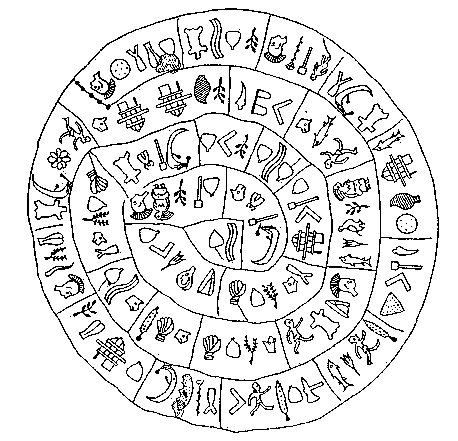
| 11 |
12 |
13 |
14 |
15 |
16 |
17 |
18 |
19 |
20 |
| 3 |
3 |
4 |
4 |
4 |
3 |
3 |
5 |
4 |
4 |
| 43 |
46 |
50 |
54 |
58 |
61 |
64 |
69 |
73 |
77 |
| 19 |
25 |
29 |
4 |
7 |
4 |
18 |
12 |
4 |
15 |
| 16 |
29 |
19 |
8 |
23 |
7 |
21 |
31 |
1 |
32 |
| 26 |
26 |
32 |
34 |
6 |
26 |
11¹ |
17 |
27 |
11 |
| |
|
26 |
9 |
12 |
|
|
17 |
8 |
9 |
| |
|
|
|
3 |
|
|
26 |
|
|
Counting, as we can guess from experience reading the rongorongo texts - where star time always seems to run without interruption from side a on to side b - we could try to add 123 (side a) + 56 = 179:
|
31 = 3
+ 28 → *328 |
|
18 |
4 |
25 |
2 |
9 |
|
knee
→
π |
beginning |
tree |
water princess |
 |
 |
 |
 |
 |
|
119 (→ 118 + 1) |
120 |
121 |
122 |
123 (→ 118 + 5) |
|
*144 =
*28 + *116 |
225
→
August 13)
|
κ Centauri (*226.4) |
227 =
327 - 100 |
*148 =
*328 - *180 |
|
*144 +
*180 = *324 |
→ Julian equinox |
*226 +
*100 |
BUNDA (*327) |
NASHIRA
(*328.0) |
|
Febr 8 (365 + 39) |
Creation of our present world |
5 Imix 9 Kumk'u |
Aug 15
(227
→
π) |
(408 -
180 = 328 - 100) |
|
Ea5-17
+ 119 = 272 |
273 |
274 |
Ea8-17 (275) |
Ea8-18
(→ 328 - 52) |
|
... On
February 9 the Chorti Ah K'in,
'diviners', begin the agricultural year.
Both the 260-day cycle and the solar year
are used in setting dates for religious and
agricultural ceremonies, especially when
those rituals fall at the same time in both
calendars. The ceremony begins when the
diviners go to a sacred spring where they
choose five stones with the proper shape and
color. These stones will mark the five
positions of the sacred cosmogram created by
the ritual. When the stones are brought back
to the ceremonial house, two diviners start
the ritual by placing the stones on a table
in a careful pattern that reproduces the
schematic of the universe. At the same time,
helpers under the table replace last year's
diagram with the new one. They believe that
by placing the cosmic diagram under the base
of God at the center of the world they
demonstrate that God dominates the universe.
The priests place the stones in a very
particular order. First the stone that
corresponds to the sun in the eastern,
sunrise position of summer solstice is set
down; then the stone corresponding to the
western, sunset position of the same
solstice. This is followed by stones
representing the western, sunset position of
the winter solstice, then its eastern,
sunrise position. Together these four stones
form a square. They sit at the four corners
of the square just as we saw in the Creation
story from the Classic period and in the
Popol Vuh. Finally, the center stone is
placed to form the ancient five-point sign
modern researchers called the quincunx ... |
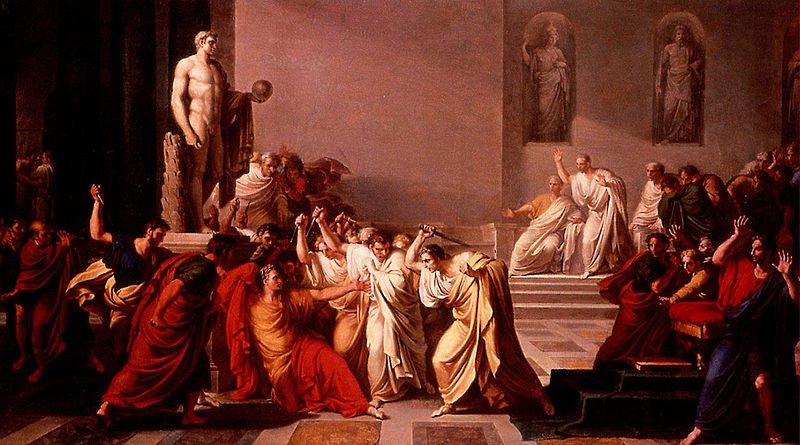
3 weeks after Ksora (*20) was the balance between
Zuben Elgenubi and Beltaine:
|
Oct 28 (301) |
29 |
30 |
31 (205 + 99) |
Nov 1 (*225)
→
Aug 13 |
.jpg) |
|
 |
 |
 |
 |
 |
|
Eb1-22 |
Eb1-23 → 123 |
Eb1-24 |
Eb1-25 |
Eb1-26 |
|
tagata |
te hau tea |
tapamea |
kaava haaati |
hokohuki - te rima - te kihikihi |
|
ρ Lupi (221.0),
TOLIMAN = α Centauri
(221.2), π Bootis (221.8), ζ Bootis (221.9) |
31 Bootis
(222.0),
YANG MUN (South Gate) =
α
Lupi
(222.1),
RIJL AL AWWA (Foot of the Barker) =
μ
Virginis
(222.5),
ο
Bootis (222.9) |
IZAR (Girdle) =
ε
Bootis
(223.0),
109 Virginis,
α
Apodis (223.3),
μ
Librae (223.8) |
Al Zubānā-14a (Claws)
/
Visakha-16 (Forked)
/
Root-3 (Badger)
ZUBEN ELGENUBI (Southern Claw) =
α
Librae
(224.2),
ξ
Bootis,
ο
Lupi (224.5) |
KOCHAB (Kakkab, Babylonian for
Star) = β Ursae Min.
(225.0),
ξ Librae (225.7) |
|
ν Arietis (38.5), δ, ε Ceti (38.8) |
μ
Arietis (39.4), HEAD OF THE FLY = 35 Arietis
(39.6),
KAFFALJIDHMA (Part of a Hand) =
γ
Ceti,
θ
Persei (39.8)
*363.0
= *39.4 - *41.4 |
π
Ceti,
ο
Arietis (40.0),
ANGETENAR (Bend in the River) =
τ¹
Eridani,
μ
Ceti (40.2),
RIGHT WING = 39 Arietis
(40.9) |
Bharani-2 (Yoni)
/
Stomach-17
(Pheasant)
π
Arietis (41.2),
MIRAM (Next to the Pleiades) =
η
Persei
(41.3),
BHARANI = 41 Arietis (41.4),
τ²
Eridani,
σ
Arietis (41.7) |
TA LING (Great Mound)
= τ Persei (42.4)
*1.0 = *42.4 - *41.4 |
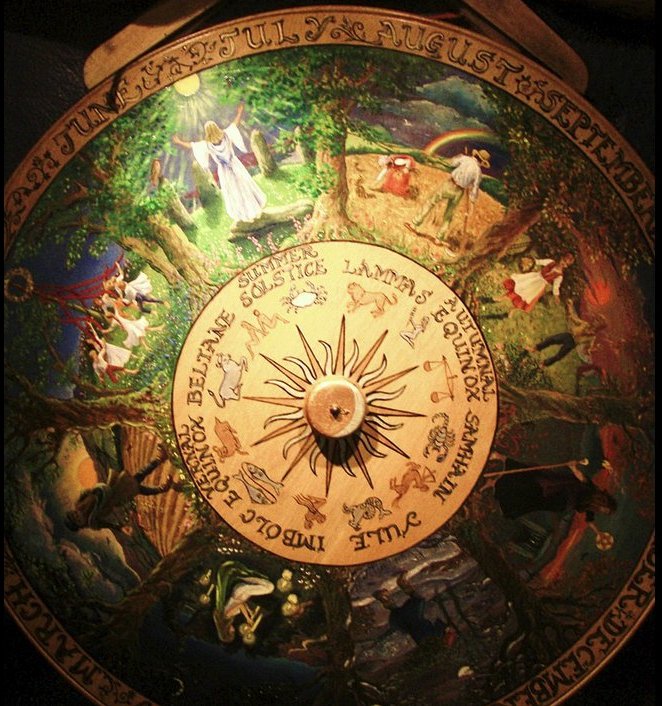 |
|
Nov 2 |
3 (*227) |
4 |
|
 |
 |
 |
|
Eb1-27 |
Eb1-28 |
Eb1-29 |
|
te hau tea |
ka
viri ka taka |
ka viri e taka |
|
Viri. 1. To wind, to coil, to roll
up; he viri i te hau, to wind, coil a
string (to fasten something). 2. To fall from a
height, rolling over, to hurl down, to fling
down. Viriviri, round, spherical (said of
small objects). Viviri te henua,
to feel dizzy (also: mimiro te henua).
Vanaga. To turn in a circle, to clew up, to
groom, to twist, to dive from a height, to roll
(kaviri). Hakaviri, crank, to
groom, to turn a wheel, to revolve, to screw, to
beat down; kahu hakaviri, shroud.
Viriga, rolling, danger. Viriviri,
ball, round, oval, bridge, roll, summit, shroud,
to twist, to wheel round, to wallow.
Hakaviriviri, to roll, to round; rima
hakaviriviri, stroke of the flat, fisticuff.
P Pau.: viriviri, to brail, to clew up;
koviriviri, twisting. Mgv.: viri,
to roll, to turn, to twist; viviri, to
fall to the ground again and again in a fight.
Mq.: vii, to slide, to roll, to fall and
roll. Ta.: viri, to roll up, to clew up.
Viritopa, danger. Mgv.: Viripogi,
eyes heavy with sleep. Mq.: viipoki,
swooning, vertigo. Churchill. Viti: vili,
to pick up fallen fruit or leaves ... In Viti
virimbai has the meaning of putting up a
fence (mbai fence); viri does not
appear independently in this use, but it is
undoubtedly homogenetic with Samoan vili,
which has a basic meaning of going around;
virikoro then signifies the
ring-fence-that-goes-about, sc. the moon. In the
Maori, aokoro is the cloud-fence ...
Churchill 2.
Taka,
takataka. Circle; to form circles,
to gather, to get together (of people). Vanaga.
1. A dredge. P Mgv.:
akataka,
to fish all day or all night with the line, to
throw the fishing line here and there. This can
only apply to some sort of net used in fishing.
We find in Samoa
ta'ā a small fishing line, Tonga taka
the short line attached to fish hooks, Futuna
taka-taka a fishing party of women in the
reef pools (net), Maori takā the thread
by which the fishhook is fastened to the line,
Hawaii kaa in the same sense, Marquesas
takako a badly spun thread, Mangareva
takara a thread for fastening the bait on
the hook. 2. Ruddy. 3. Wheel, arch; takataka,
ball, spherical, round, circle, oval, to roll in
a circle, wheel, circular piece of wood, around;
miro takataka, bush; haga takataka,
to disjoin; hakatakataka, to round, to
concentrate. P Pau.: fakatakataka, to
whirl around. Mq.: taka, to gird. Ta.:
taa, circular piece which connects the frame
of a house. Churchill. Takai, a curl, to
tie; takaikai, to lace up; takaitakai,
to coil. P Pau.: takai, a ball, to tie.
Mgv.: takai, a circle, ring, hoop, to go
around a thing. Mq.: takai, to voyage
around. Ta.: taai, to make into a ball,
to attach. Churchill.
Takapu.
Mq.: a girdle. Ma.:
takapu, the belly. Churchill.
Takau.
Mgv.: ten pairs.
Ta.: toau, id. Mq.: tekau, id.
To.: tekau, id. Ma.: tekau, ten.
Churchill.
Takaure.
Fly; horse-fly. Vanaga. A fly;
takaure iti,
mosquito;
takaure marere ke, swarm. Churchill.
...
There is a couple residing in
one place named Kui and Fakataka.
After the couple stay together for a while
Fakataka is pregnant. So they go away
because they wish to go to another place - they
go. The canoe goes and goes, the wind roars, the
sea churns, the canoe sinks.
Kui
expires while Fakataka swims
... |
|
KE KWAN (Cavalry Officer) =
β
Lupi
(226.3),
KE KWAN =
κ
Centauri (226.4),
ZUBEN ELAKRIBI (Claw of the Scorpion) =
δ
Librae
(226.8),
π¹
Oct.
(226.9)
*185.0 = *226.4 - *41.4 = "Sept 22 (265) =
equinox |
ω Bootis (227.2),
NEKKAR (Herdsman) = β Bootis
(227.3), σ Librae (227.5), π² Oct. (227.7),
NADLAT (Mean Little Ones) = ψ Bootis
(227.8), π Lupi (227.9) |
15h (228.3)
ZUBEN HAKRABIM (Claw of the Scorpion) =
ν
Librae
(228.3),
λ
Lupi (228.9) |
|
ρ
Arietis (43.0),
GORGONEA SECUNDA =
π
Persei
(43.5),
ACAMAR (End of the River) =
θ
Eridani
(43.6),
ε
Arietis (43.7),
λ
Ceti (43.9)
DENEBOLA (β Leonis) |
MENKAR (The Nose) =
α Ceti
(44.7) |
3h (45.7)
GORGONEA TERTIA =
ρ
Persei
(45.1),
ALGOL (The Demon) = β Persei
(45.9) |
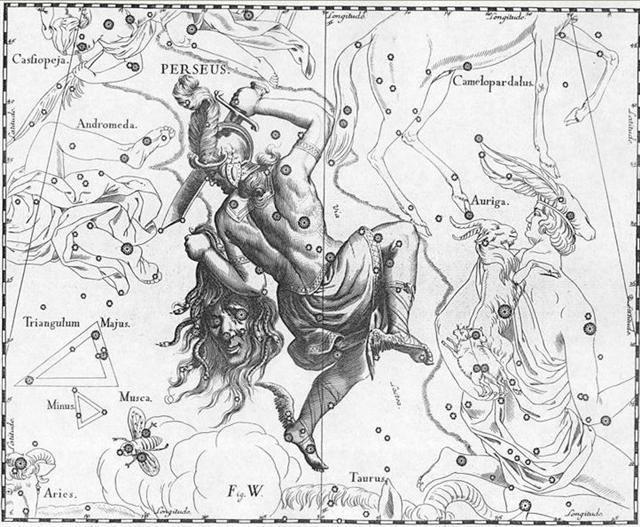 |
|
Nov 5 (*229) |
6 |
7 |
8
|
9 → 108 |
10 (314) |
11
(*235) |
|
 |
 |
 |
 |
 |
 |
 |
|
Eb1-30 |
Eb1-31 |
Eb1-32 |
326 + 33 |
Eb1-34 (360) |
Eb1-35 |
Eb1-36 |
|
ka tu i te toga te manu -
hua te vaero |
tagata puoko kore |
oho hukiga - te rima |
vanaga hia |
hare pure |
i te rima |
Kua vare |
|
37 |
2 |
9 |
28 |
12 |
9 |
 |
 |
 |
|
107 |
108 |
109 |
110 |
123 |
|
*312 |
*313 |
*314 |
π - 3.14 |
*328 |
|
Jan 27
(392) |
16 |
|
July 29 (210) |
|
Ea8-4 (260) |
no glyph |
ki te vai |
(te hupee) |
|
NASHIRA |
Vare.
Spittle, drivel, any viscous liquid;
viscous; vare māmari, egg white;
pipi-vare, slug. Vanaga. Varevare,
steep, rugged. Tu.: vare, to lose
consciousness. Barthel 2. 1. Hakavare,
to crisp, to plaster; hakavarevare,
to level. 2. Driveler. P Mgv.: vare,
clumsy, inept. Turivare, abscess at
the knee. Varegao, to speak
indistinctly, to offend, to pretend.
Varevare: 1. Steep, rugged. 2. Smooth,
plain, without rocks; horo varevare,
without branches; tino varevare,
slender; kona varevare, open place,
court, market place. PS Sa.: valevale,
fat. To.: valevale, young, tender,
applied to babies. In Nuclear Polynesia it
is difficult to dissociate this vale
from the vale conveying the sense of
ignorance. In Samoa this varevare
appears only as applied, lē valevale,
to a hog that is not fat. It is probable
that varevare
2 preserves the Proto-Samoan primitive and
that the sense-invert, in the preceding
item, is directed away from the germ-sense.
Churchill. ... And
then
she looked in her hand, she inspected it
right away, but the bone's saliva wasn't in
her hand. It is just a sign I have given
you, my saliva, my spittle. This, my head,
has nothing on it - just bone, nothing of
meat. It's just the same with the head of a
great lord: it's just the flesh that makes
his face look good. And when he dies, people
get frightened by his bones. After that, his
son is like his saliva, his spittle, in his
being, whether it be the son of a lord or
the son of a craftsman, an orator ...
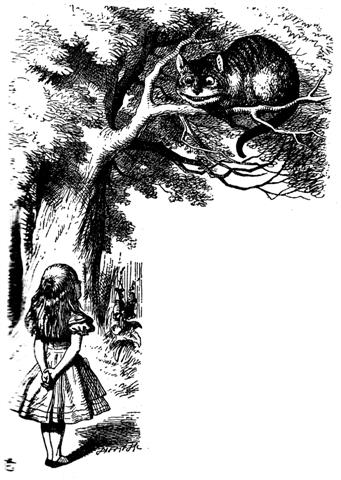
Vanaga.
To speak, to talk, to pronounce;
conversation, talk, word, language; he
vānaga i te vānaga rapanui, to speak
Rapanui; vānaga reoreo, lies, lying
words, falsehoods. Vanavanaga, to
talk at length; useless talk. Vanaga. To
speak, to say, to chat, to discourse, to
address, to recount, to reply, to divulge,
to spread a rumor; argument, conversation,
formula, harangue, idiom, locution, verb,
word, recital, response, speech; vanaga
roroa, chatterbox, babbler; rava
vanaga, candid, babbler; tae vanaga,
discreet; tai vanaga, ripple;
vanagarua (vanaga - rua
1), echo. P Pau.: vanaga, to warn by
advice. Mgv.: vanaga, orator, noise,
hubbub, tumult. Mq.: vanaa, orator,
discourse, counsel, advice. Churchill.
|
|
ω
Oct. (229.3),
ι
Librae (229.6),
κ
Lupi (229.7),
ζ
Lupi (229.8) |
Al Zubānā-14b (Claws)
χ
Bootis (230.3),
PRINCEPS =
δ
Bootis
(230.6),
ZUBEN ELSCHEMALI (Northern Claw) =
β
Librae
(230.8) |
μ
Lupi,
γ
Tr. Austr.
(231.3), ο Librae (231.8) |
ο
Cor. Borealis (232.0),
δ
Lupi (232.1),
φ¹,
ν²
Lupi (232.2),
ν¹
Lupi (232.3),
ε
Lupi (232.4),
φ²
Lupi (232.5),
PHERKAD (The Dim One of the Two Calves) =
γ
Ursae Min.
(232.6),
ε
Librae (232.7),
η
Cor. Borealis (232.8),
υ
Lupi (232.9)
*191.0 = *232.4 - 41.4 |
ALKALUROPS (The Herdsman's Lance) =
μ
Bootis
(233.1),
ED ASICH (Male Hyena) =
ι
Draconis
(233.2) |
NUSAKAN (Pauper's Bowl) = β Cor. Bor.
(234.0), κ¹ Apodis (234.3), ν Bootis (234.7), ζ
Librae (234.9) |
θ Cor. Borealis (235.3), γ Lupi (235.6),
GEMMA = α Cor. Bor.,
ZUBEN ELAKRAB = γ Librae, QIN = δ Serpentis, ε
Tr. Austr.
(235.7), μ Cor. Borealis (235.8), υ Librae
(235.9)
SIRRAH (α Andromedae)
|
|
ι
Persei (46.1),
MISAM (Next to the Pleiades) =
κ
Persei
(46.2),
GORGONEA QUARTA =
ω
Persei
(46.7),
BOTEIN (Pair of Bellies) =
δ
Arietis
(46.9) |
ζ Arietis (47.7) |
ZIBAL (Young Ostriches) = ζ Eridani (48.0),
κ
Ceti (48.9) |
τ Arietis (49.7) |
ALGENIB PERSEI = α Persei (50.0),
ο Tauri (50.2), ξ Tauri (50.8)
GIENAH (γ Corvi) |
σ Persei (51.6) |
No star listed (52) |
|
... In other words, the ancient Druidic religion
based on the oak-cult will be swept away by
Christianity and the door - the god Llyr - will
languish forgotten in the Castle of Arianrhod,
the Corona Borealis. This helps us to
understand the relationship at Rome of Janus and
the White Goddess Cardea who is ... the Goddess
of Hinges who came to Rome from Alba Longa. She
was the hinge on which the year swung - the
ancient Latin, not the Etruscan year - and her
importance as such is recorded in the Latin
adjective cardinalis - as we say in
English 'of cardinal importance - which was also
applied to the four main winds; for winds were
considered as under the sole direction of the
Great Goddess until Classical times ... |
|
Nov 12 (*236) |
13 |
14 (*55 +
*183) |
15 |
16 (*240) |
→ 123 + 118 |
|
 |
 |
 |
 |
 |
 |
|
Eb1-37 |
Eb1-38 |
Eb1-39
(365) |
Eb1-40 |
Eb1-41 |
Eb1-42 |
|
koia ra - kua oho |
moa rere ragi |
ihe tara huki |
te henua |
te huki |
te hau tea - ko itiiti |
|
Huki.
1. Pole attached to the poop from which the
fishing-net is suspended: huki kupega. 2.
Digging stick. 3. To set vertically, to
stand (vt.). 4. Huki į te mahina, said of
the new moon when both its horns have become
visible. Vanaga. 1. To post up, to publish. 2.
To cut the throat (uki). Mq.: Small
sticks which close up the ridge of a house. Ha.:
hui, the small uniting sticks in a
thatched house. Churchill. Standing upright.
Barthel. M. Spit for roasting. Te Huki, a
constellation. Makemson. Hukihuki. 1.
Colic. 2. To transpierce, a pricking. 3. To sink
to the bottom |
|
φ Bootis (236.2), ω Lupi, τ Librae (236.3), ψ¹
Lupi (236.7), ζ Cor. Borealis (236.9) |
κ
Librae (237.2),
ι
Serpentis (237.4),
ψ²
Lupi,
ρ
Oct.
(237.5), γ Cor. Borealis, η Librae (237.7), COR
SERPENTIS = α Serpentis
(237.9)
*196.0 = *237.4 - *41.4 |
π
Cor. Borealis,
UNUK ELHAIA (Necks of the Serpents) =
λ
Serpentis
(238.1),
CHOW =
β
Serpentis
(238.6) |
κ
Serpentis (239.3),
δ
Cor. Borealis,
TIĀNRŪ =
μ
Serpentis
(239.5),
χ
Lupi, (239.6),
ω
Serpentis (239.7),
BA (= Pa) =
ε
Serpentis,
χ
Herculis (239.8).
κ
Cor.
Borealis, ρ Serpentis (239.9) |
λ
Librae (240.0),
β
Tr. Austr. (240.3),
κ
Tr. Austr. (240.4),
ρ
Scorpii (240.8)
*199.0 = *240.4 - *41.4 |
Iklīl al Jabhah-15 (Crown of the Forehead)
/
Anuradha-17 (Following Rādhā)
/
Room-4
(Hare)
ξ
Lupi,
λ Cor. Bor.(241.1),
ZHENG =
γ
Serpentis,
θ Librae (241.2),
VRISCHIKA =
π
Scorpii
(241.3),
ε
Cor.
Borealis (241.5),
DSCHUBBA
(Front of Forehead) = δ Scorpii
(241.7), η Lupi (241.9) |
|
ψ
Persei (53.1)
ACRUX (α
CRUCIS) |
δ
Persei (54.7) |
Al Thurayya-27 (Many
Little Ones)
/
Krittikā-3 (Nurses of Kārttikeya)
/
TAU-ONO (Six Stones)
ATIKS =
ο
Persei,
RANA (Frog) =
δ
Eridani
(55.1),
CELAENO (16 Tauri), ELECTRA (17), TAYGETA (19),
ν
Persei (55.3), MAIA (20), ASTEROPE (21), MEROPE
(23)
(55.6) |
Hairy Head-18 (Cockerel)
/
Temennu-3 (Foundation Stone)
ALCYONE
(56.1),
PLEIONE (28 Tauri), ATLAS (27 Tauri)
(56.3) |
MENKHIB (Next to the Pleiades =
ζ
Persei
(57.6)
PORRIMA (γ Virginis) |
ZAURAK (Boat) = γ Eridani
(58.9) |
Counting from the Sun rising with Alcyone in spring to
his descent at Vrischika in autumn resulted in the measure
56 + 185 = 241. Probably this was projected on the
Phaistos disc. 205 (Heze) + 123 = 328 (Nashira),
and then 328 + 118 - 366 = 80 (Elnath).
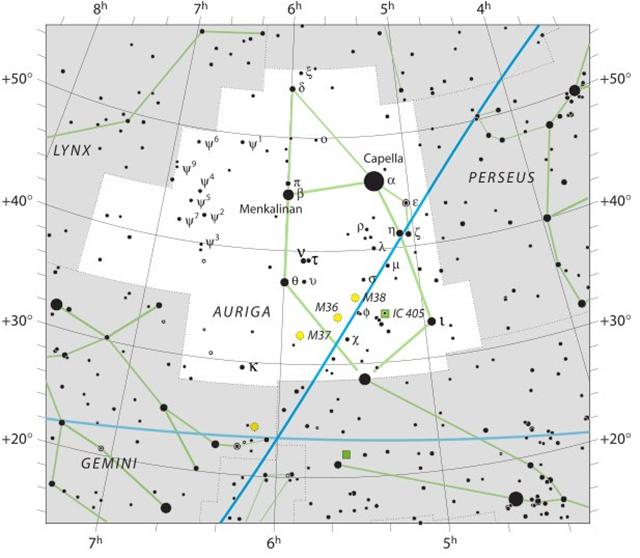
|



.jpg)









